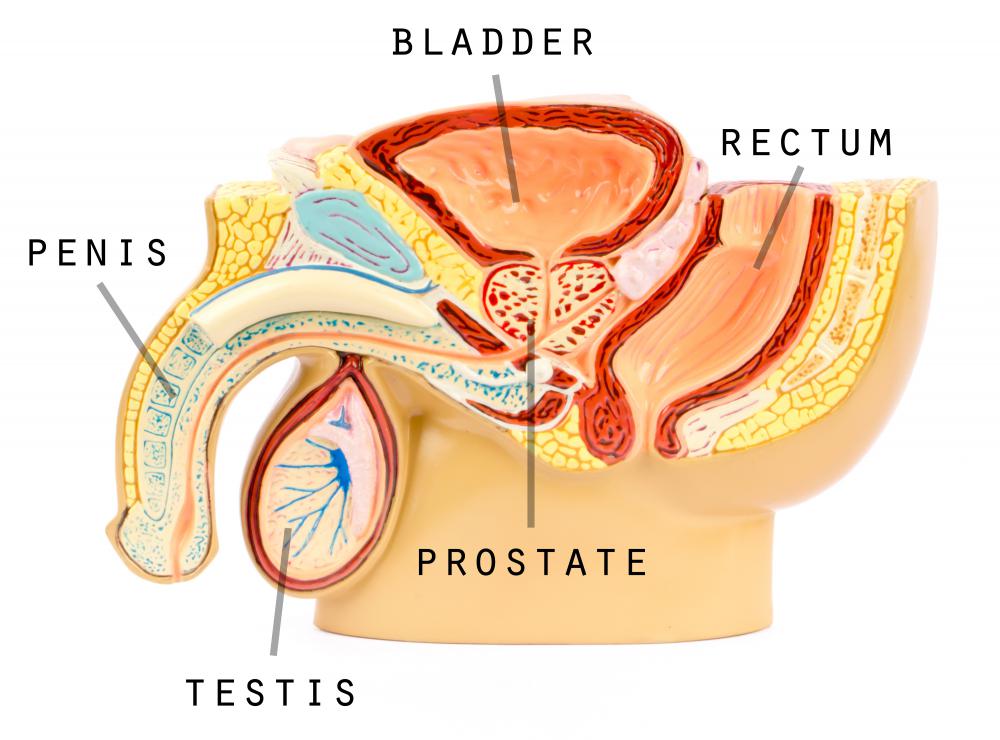At TheHealthBoard, we're committed to delivering accurate, trustworthy information. Our expert-authored content is rigorously fact-checked and sourced from credible authorities. Discover how we uphold the highest standards in providing you with reliable knowledge.
What are Genital Lesions?
The term "genital lesions" can be used to describe any sores, warts or other blemishes that appear on the male or female genitalia. Lesions can vary widely in color and appearance. In some cases, people who have these lesions are embarrassed and fail to seek treatment.
Genital lesions are most often caused by sexually transmitted diseases or infections. Herpes, a viral infection, is one of the more well-known diseases that can cause lesions. Not all people with herpes experience sores, but those who do experience them develop painful, fluid-filled blisters around, on or in the genitals. The blisters eventually burst and leave ulcers that can take several weeks to heal.

Syphilis, a bacterial infection, is another common sexually transmitted disease that can cause these lesions. The appearance of small, painless sores is the first recognizable symptom of the disease. These sores go away independently in a matter of weeks, but it is crucial to receive treatment for the underlying disease, because the infection spreads throughout the body.

Genital warts, another type of lesion, are commonly caused by human papillomavirus (HPV). It is the most widespread sexually transmitted infection. Lesions can appear on the outer genitalia or even inside the vagina or cervix for women. Some other less common sexually transmitted diseases that can cause lesions are molluscum contagiosum, granuloma inguinale and chancroid.
For women, the vulva can be a site for precancerous lesions that appear as patches. Women can develop different types of skin cancer on the vulva, including melanoma or carcinomas. Other, non-cancerous cysts can develop for men or women.

A doctor can sometimes diagnose the cause of the lesions by visual examination and description of symptoms. Typically, the patient will have to undergo a physical examination and answer questions regarding medical history. The physician might take a sample of the tissue for a biopsy or a sample of the fluid from a blister or ulcer. In some cases, the doctor might recommend further testing, such as a complete blood count, a blood differential or a rapid plasma reagin test.

Treatment for genital lesions varies and is based on the cause. Some lesions can be treated with a topical medication or removed by a physician. If they are caused by a sexually transmitted disease, the patient might have to take antiviral drugs or antibiotics. Depending on the diagnosis, the doctor might recommend that the patient avoid sexual contact for a period of time.
If an individual has genital lesions of any kind, he or she should contact a health care provider. It is important to discover the underlying cause of the lesions in case specific treatment is necessary. Some of the conditions that can cause these lesions might lead to serious complications.
AS FEATURED ON:
AS FEATURED ON:














Discussion Comments
@gardenturtle:
According to a recent national study to determine how common genital herpes is in the United States, about one out of six people are infected with the disease. Nationwide that is about 16.2%. This particular study was for ages 14 to 49. These numbers have remained stable over the last ten years.
It is more common in women (one out of five) than it is in men (one out of nine). However, transmission from an infected male to his female partner is more likely than from a female who is infected to her male partner.
Is genital herpes very common?
Post your comments